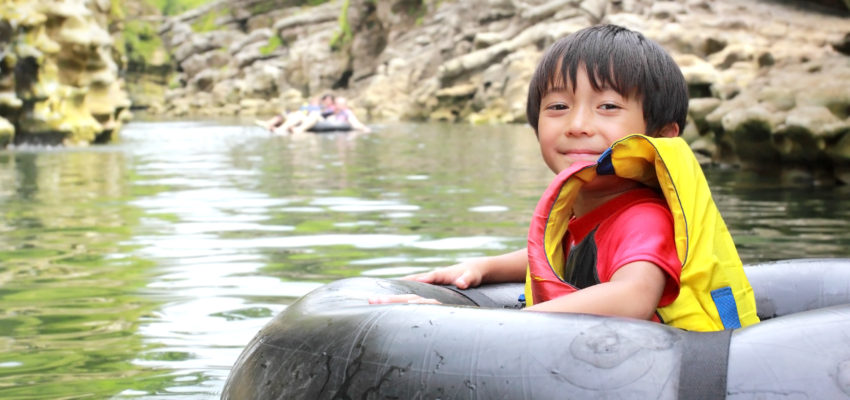10 Water Safety Tips to Keep You and Your Family Safe this Summer

‘Tis the season for fun in the sun, sand, and water. But with all the fun that splashing around can bring, it’s important to remember that water has its risks. An average of nine people die from drowning every day in the United States, according to the National Safety Council. So whether you’re heading to the pool, the lake, or the ocean, it’s important you and your family brush up on your water safety knowledge. Here are our top water safety tips for families to help keep you safe this summer:
Never swim alone.
No matter how old you are, a good rule of thumb to follow is to use the buddy system while swimming. At public pools and beaches, always be sure to swim with a lifeguard on duty, and teach your children to always swim with a friend or sibling when an adult isn’t able to be in the water.
Supervise children in the water.
Pool and beach time may seem like the perfect chance to relax, but when your kids are in the water, you need to be alert. Young children should never be more than an arm’s reach away when they’re in water, and older children should be kept close and visible at all times. Even if your children are strong swimmers, tricks, flips, and dives—all things children like to do in the water—can be dangerous. And remember to work together! You can take turns watching the pool if other adults are present.
Always wear a life vest.
While life jackets alone aren’t enough to keep you safe, they should always be worn by young or inexperienced swimmers around water. Be sure you choose a Coast Guard-certified life jacket, and don’t rely on water wings, floaties, pool noodles, or other pool toys as a substitute for the real deal in an emergency.
Enter the water feet first.
Jumping or diving headfirst into shallow water can cause serious injuries. Be sure to teach your children the correct way to enter and exit a pool or lake, and if they want to jump or dive, make sure they are doing it correctly, in an area where it’s safe and deep enough to do so. Do not allow diving in any pools that do not have an area specifically designated for diving, no matter how deep it is.
Stay within designated swim areas.
Whether you’re in a pool, ocean, or lake, always stay within the designated swim areas. Make sure your children understand rope dividers in pools, and never encourage them to swim in water deeper than their swimming ability will allow. And always remember to follow local lifeguard guidelines—they know the water, the area, and changing conditions best.
Avoid using alcohol.
Adults should never consume alcohol while supervising children in the water. From being distracted to being unable to act appropriately in an emergency, it’s never a good idea. For older children, be sure to talk to them about alcohol and how it impairs judgment, coordination, and balance. These will all affect your ability to swim well or safely.
Invest in pool safety equipment.
If you own an at-home pool, there are several additional precautions you can take to keep children and guests safe around the pool. Some examples of safety equipment you can purchase include fences, pool covers, life preservers, alarms, float lines, and pool safety hooks.
Learn CPR.
Bystanders are the first to be able to react and respond if a drowning or pool-related accident occurs. Knowing how to administer CPR can be the difference between life and death, and it’s critical knowledge for adults supervising children. You can get your CPR certification and keep it up to date through the American Red Cross, local hospitals, and other community organizations.
Don’t jump in to save a friend.
The YMCA recommends a “reach, throw, don’t go” approach. Children may be eager to jump in to save a friend who is struggling, but this can cause both people to drown. Instead, teach them to use a long object to pull their friend to safety so they can help their friend without putting themselves at risk, too.
Get covered.
We hope these tips help keep you and your loved ones safe this summer. You can find more water safety resources for you and your family through the YMCA, the American Red Cross, the National Drowning Prevention Alliance (NDPA) and more. Contact a local Bearingstar Insurance agent to see how you can protect your pool, watercrafts, and more all year round.
Sources:
- Water Safety Tips. The Gateway Region YMCA. https://gwrymca.org/blog/water-safety-tips
- Water Safety. American Red Cross. https://www.redcross.org/get-help/how-to-prepare-for-emergencies/types-of-emergencies/water-safety.html
- 10 Open Water Safety Tips. NDPA. https://ndpa.org/10-open-water-safety-tips/
